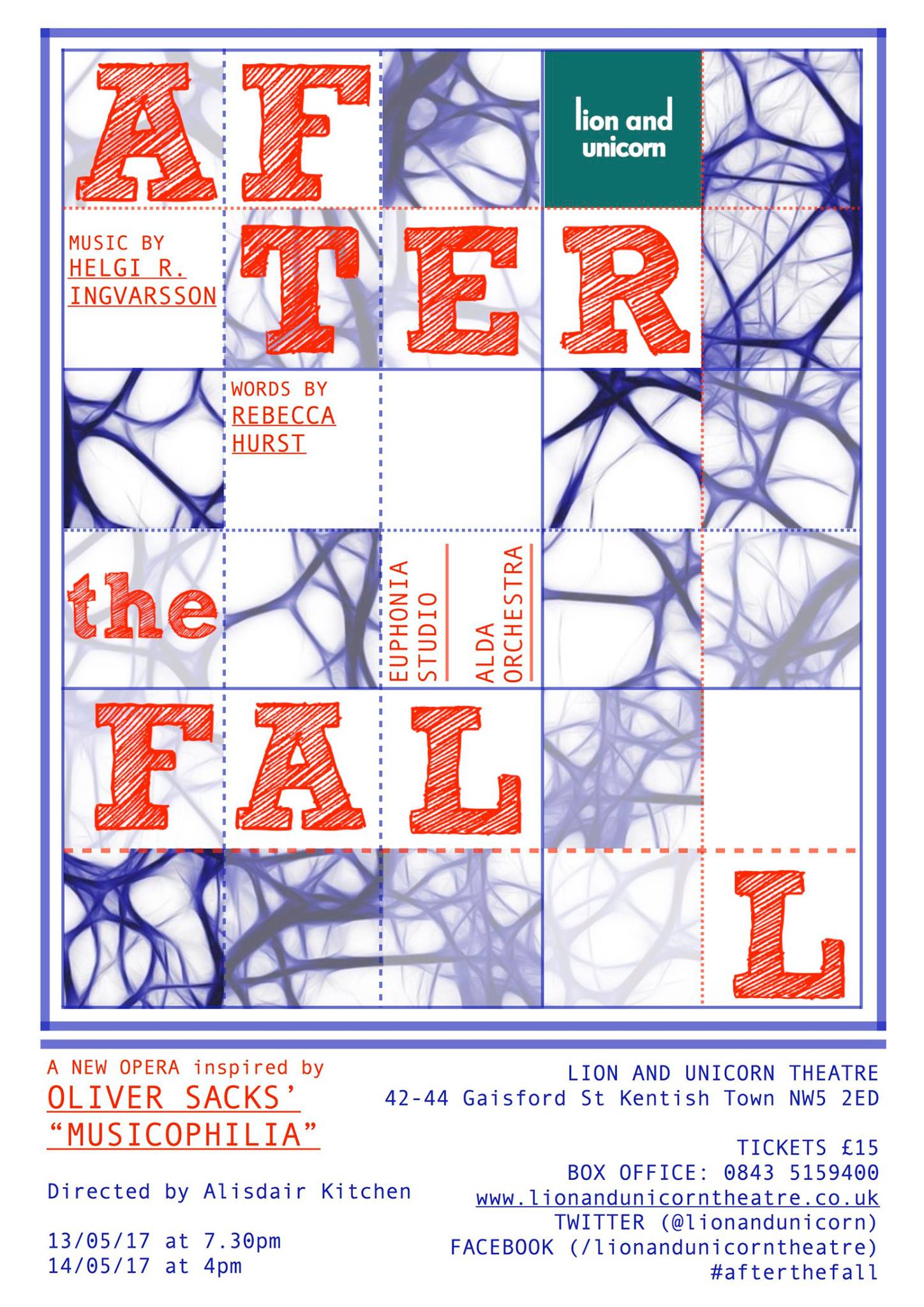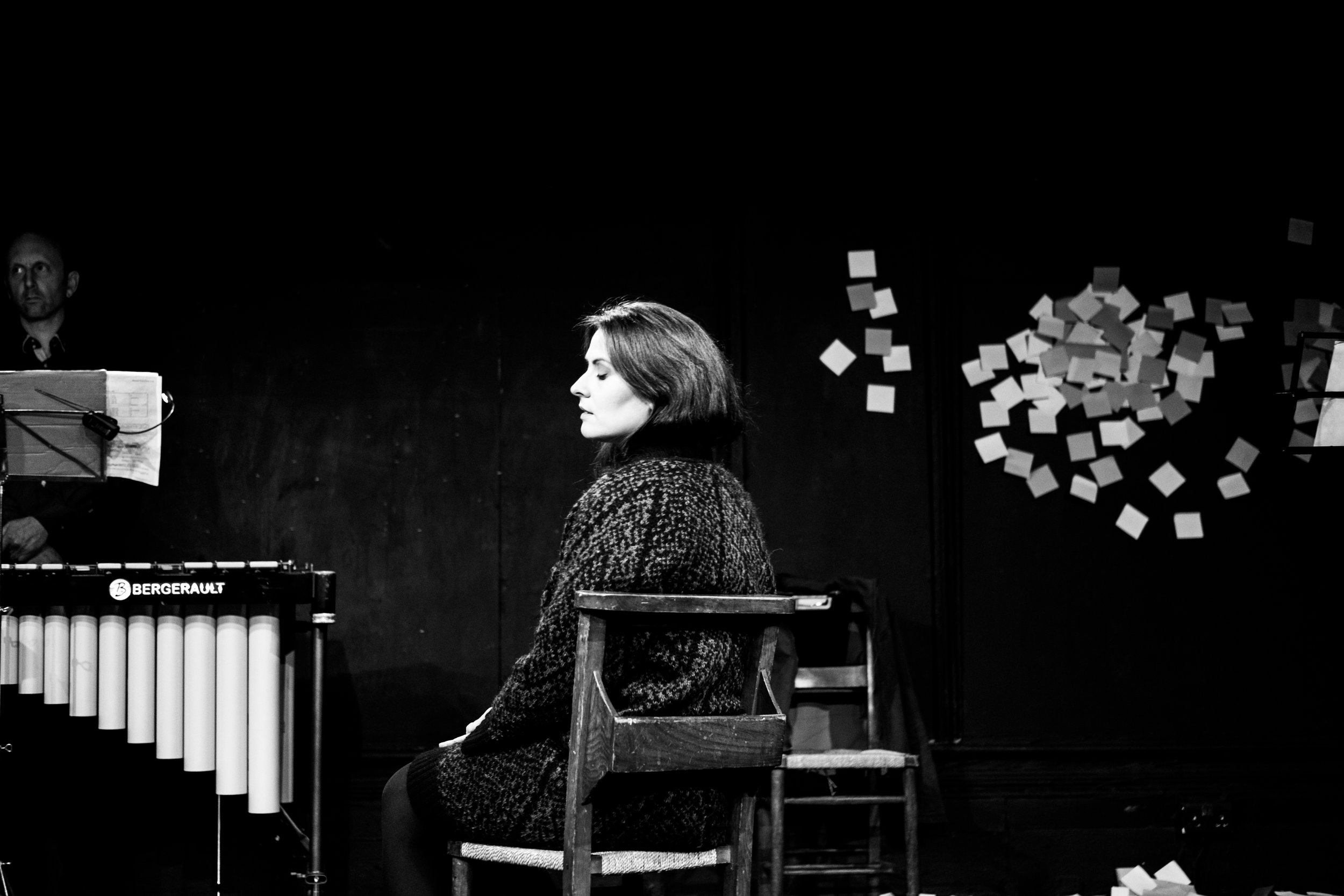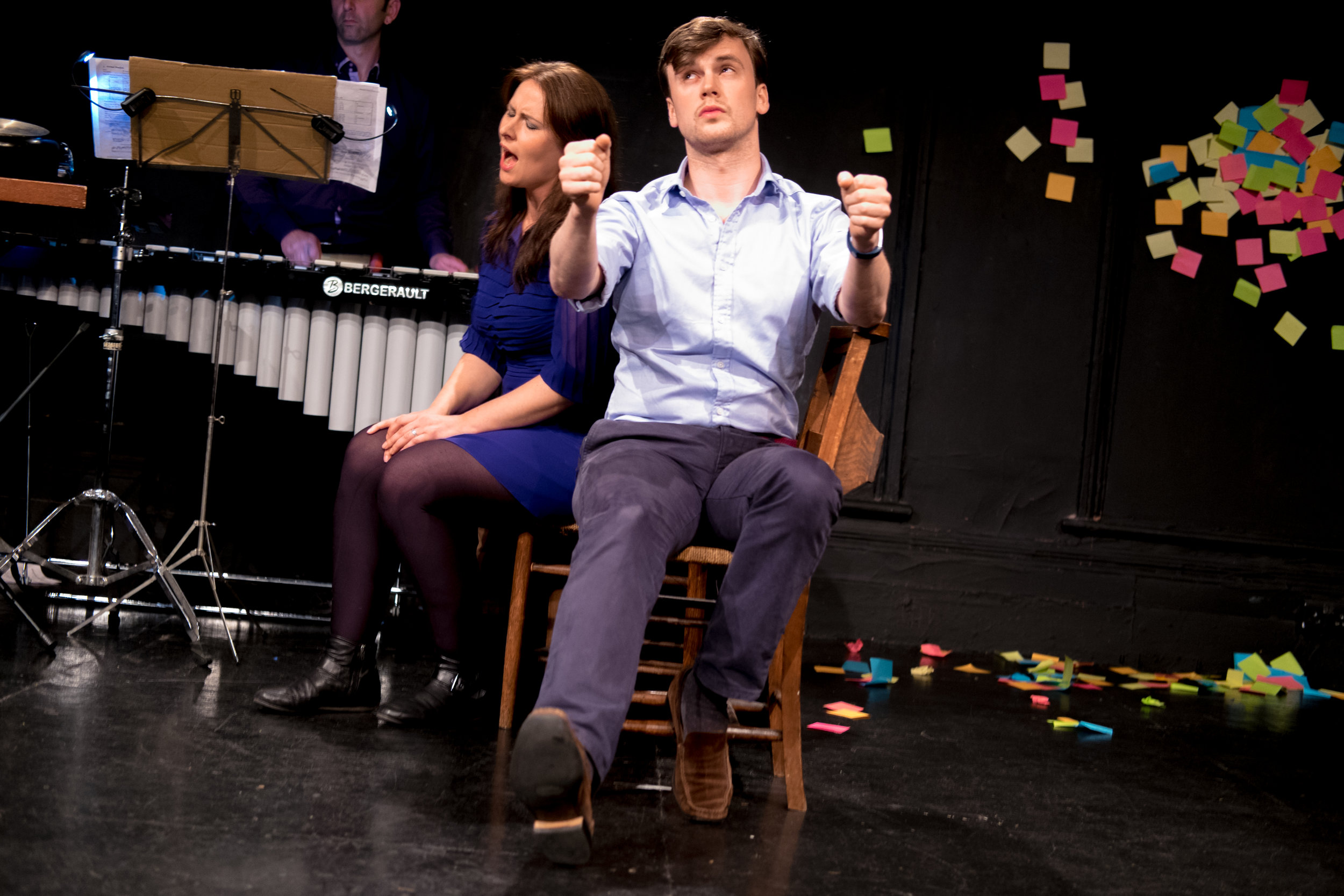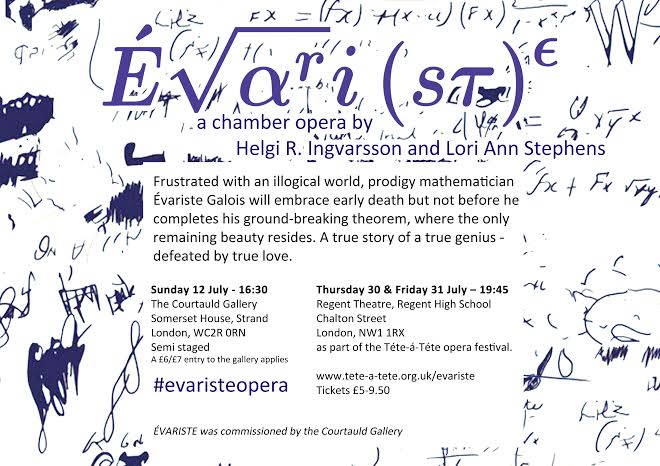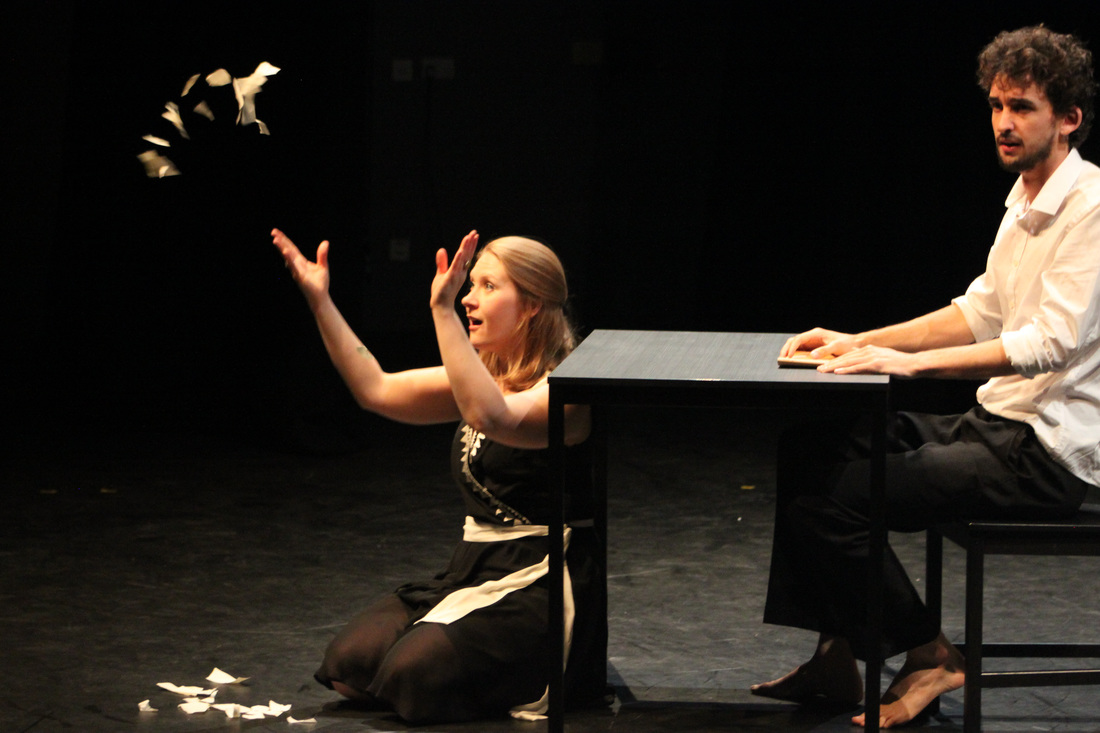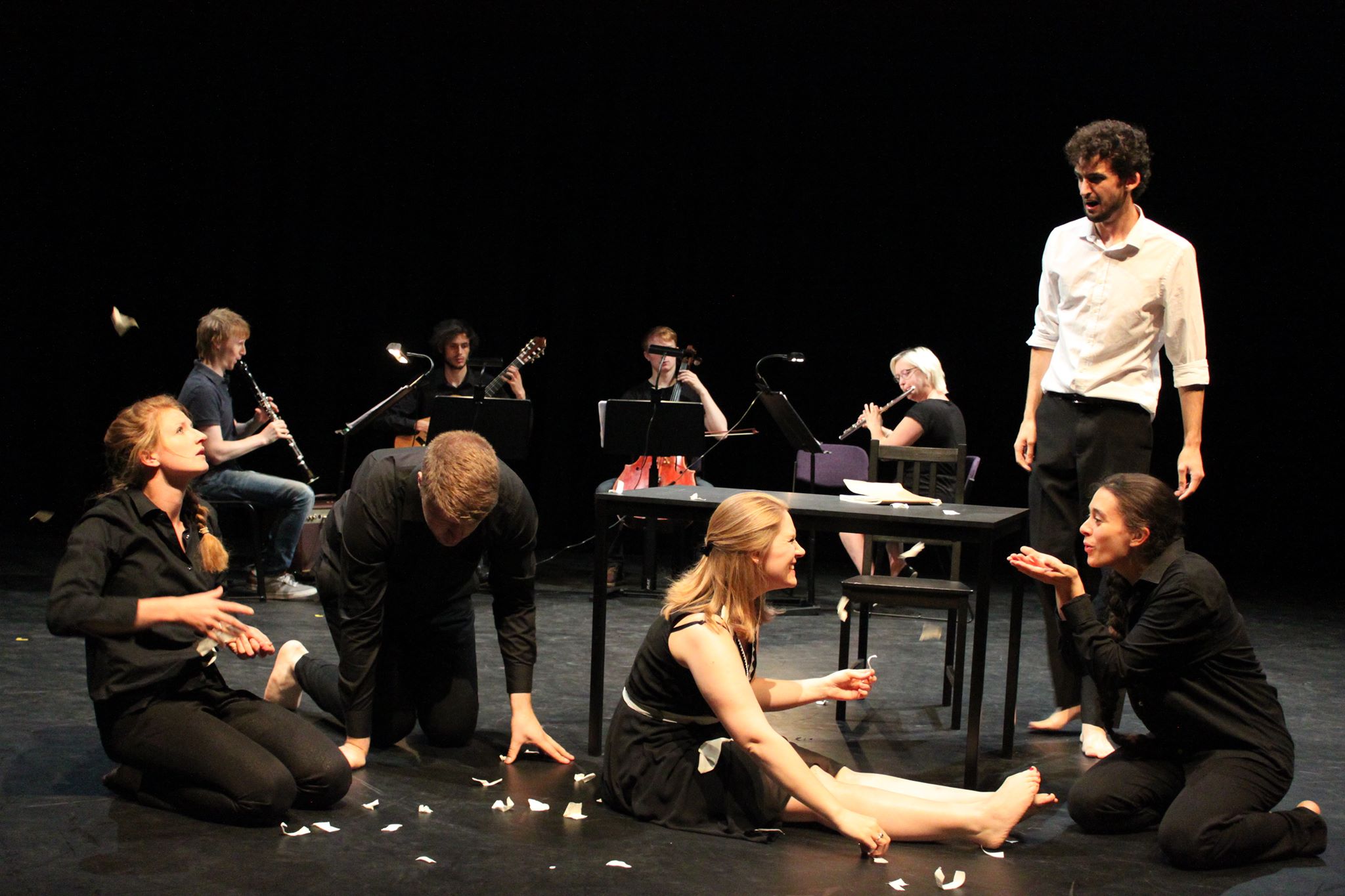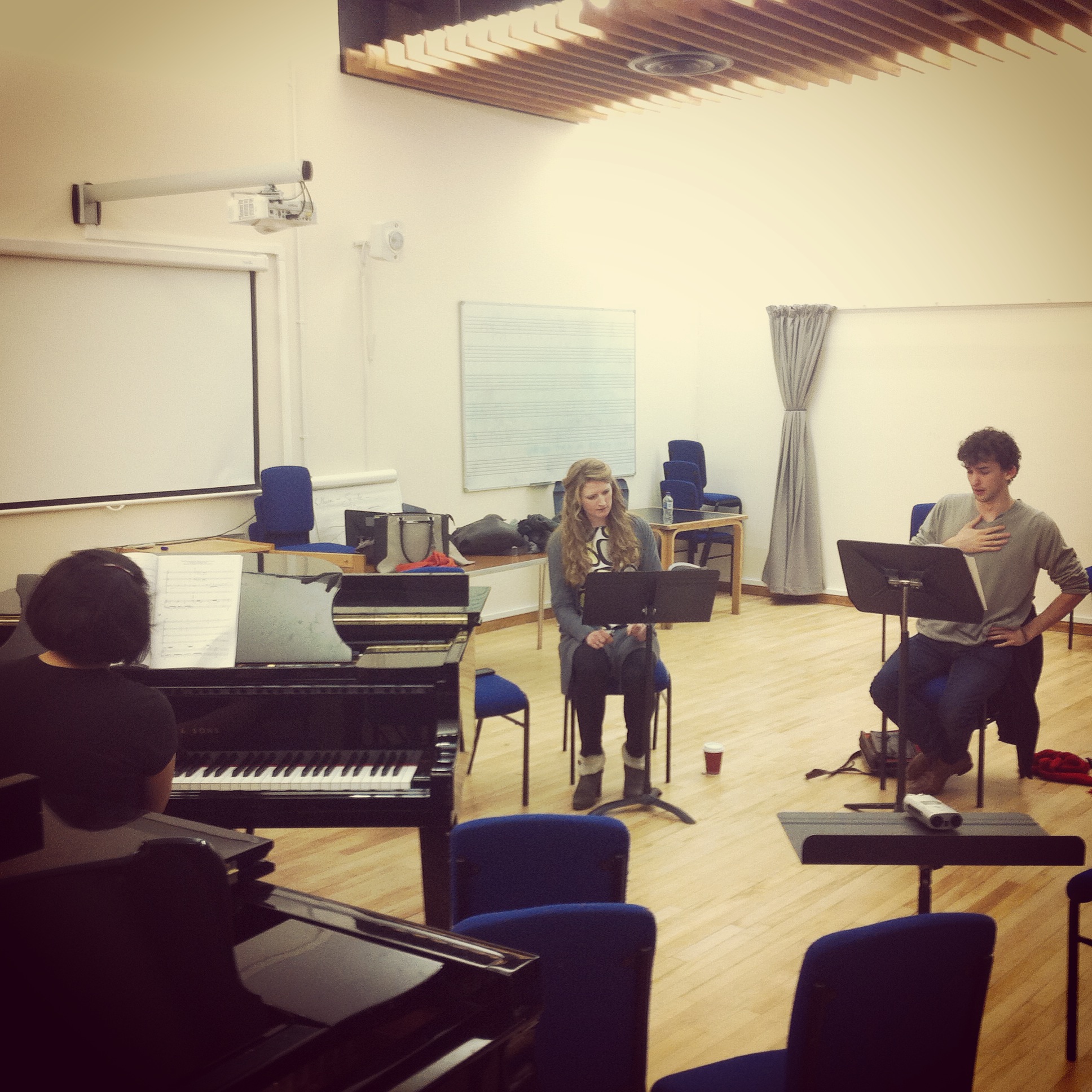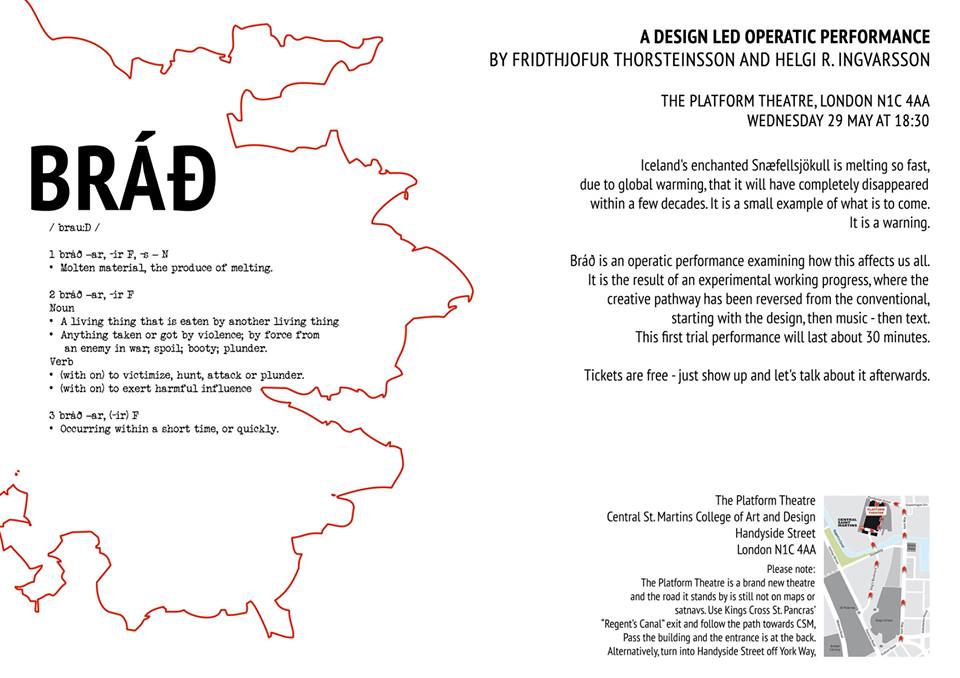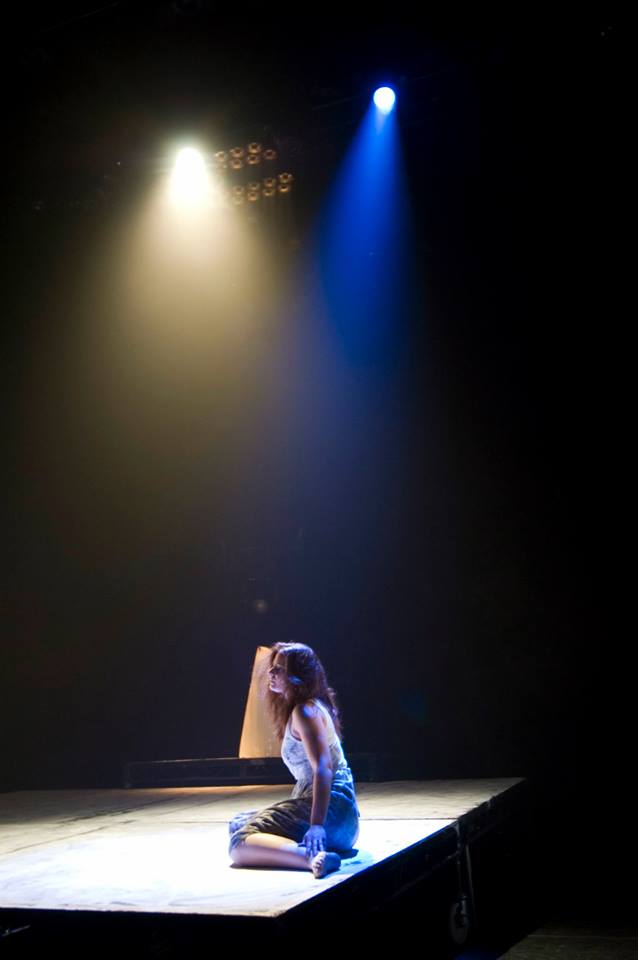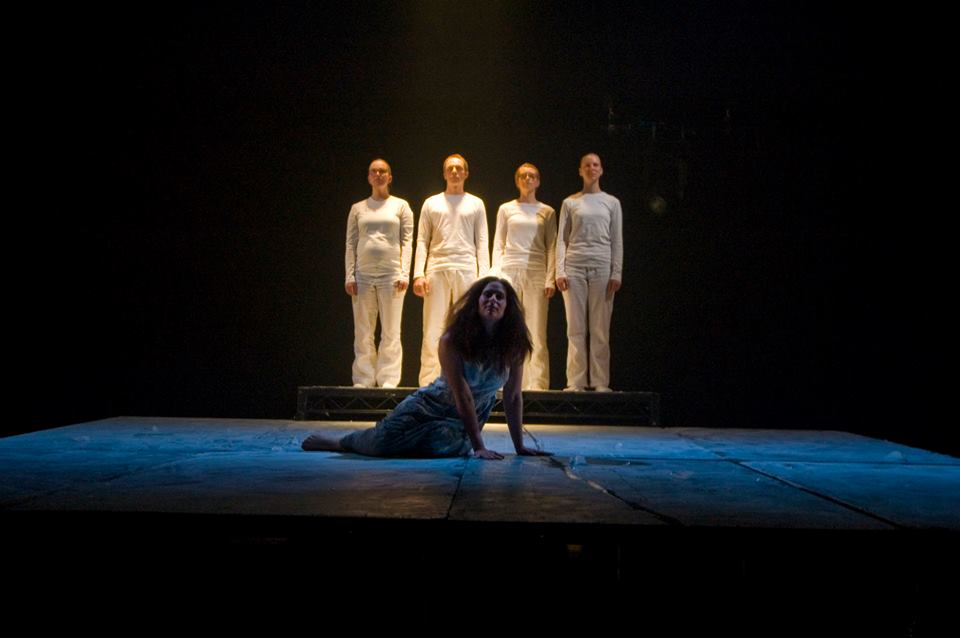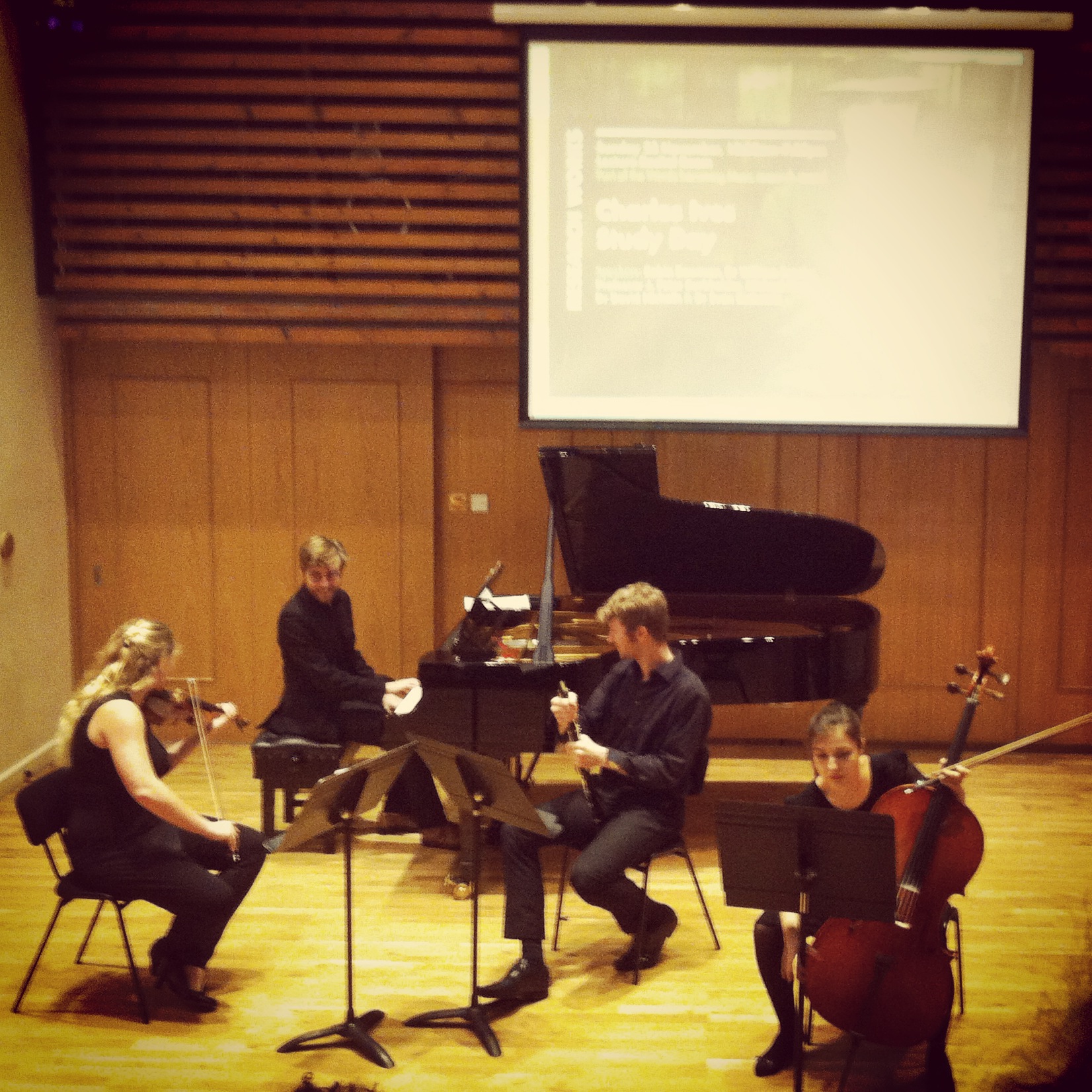Ingvarsson, H. R. (2018). Opening Opera: Developing a framework that allows for the interactive creative processes of improvised theatre in the productions of new music-dramas". London, England: Guildhall School of Music and Drama. http://openaccess.city.ac.uk/21324/
OPENING OPERA (2018) - DMus dissertation
- abstract below
In April 2018 Dr. Helgi Rafn Ingvarsson completed his doctorate degree in music composition (DMus) at the renowned Guildhall School of Music and Drama in London, generously supported by the Guildhall School Trust. The research is titled "Opening Opera: Developing a framework that allows for the interactive creative processes of improvised theatre in the productions of new music-dramas."
Below you can read the full dissertation and view pictures from few of the projects, workshops and productions that contributed to Opening Opera in 2013-2017.
Abstract
Opening Opera explores creative collaboration and dramatic improvisation in new music-dramas. Looking towards the art of improvised theatre, the aim is to achieve a dramatic process in opera which facilitates a flexible kind of dramaturgy, enabling singers and directors to lead and inform certain creative processes that are normally in the hands of the operatic composer and/or librettist alone. By developing particular unorthodox scoring methods, along with specific rehearsal schedule considerations that support these flexible processes, the composer attempts to create not improvised opera, but what could be called an open opera, where the compositional focus is working with a free vocal line with active accompaniment. This framework is one in which the composer provides the parameters and material for dramatic and compositional flexibility, and then ‘takes a step back’ during a collaborative and improvisational process, whilst retaining sufficient leadership and creative authority to realise the overarching structure satisfactorily.
In order to develop said unorthodox scoring methods and processes, the creative team explored and informed structural, dramatic, technical and musical aspects of new material, utilising the performers’ specialised training and experience in an interactive creative process. This exploration brought up questions such as: how to allow an open process such as this one while still attempting to retain overarching artistic control; what are the parameters that the composer will need to determine (i.e. keep 'closed'); and what are the parameters that he must allow to be spontaneous, improvised or open?
By opening up the process in this way, interesting genre specific problems were exposed that are more often than not left implicit rather than explicit by creators of opera. This exploration reveals knowledge beneficial to tutors, composers, librettists, singers, conductors and directors of music-dramas.
This inquiry is primarily grounded in several methods extracted and modified from improvised theatre, opera, and open-scored compositions of the mid-20th century.
Above you can see various photographs and documents linked with the DMus dissertation.


